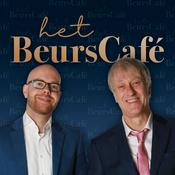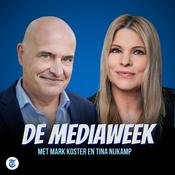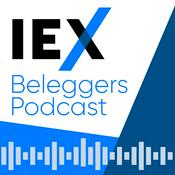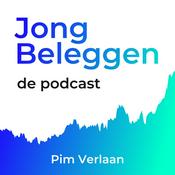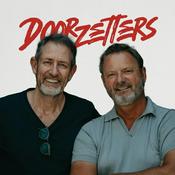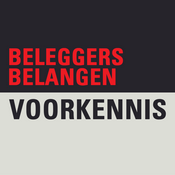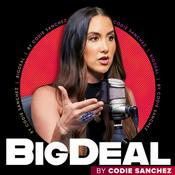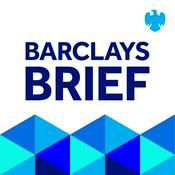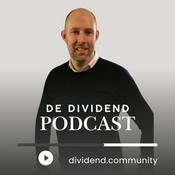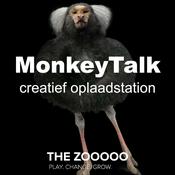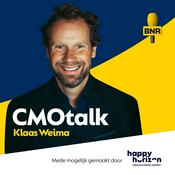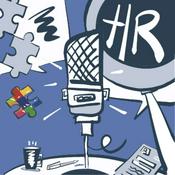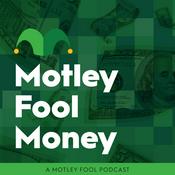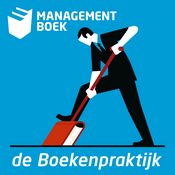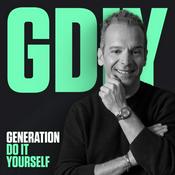Directionally Correct, A People Analytics Podcast
WRKdefined Podcast Network
Nieuwste aflevering
136 afleveringen
- Check out this episode of the #1 people analytics podcast with special guest, Amy Armitage, Program Director for Human Capital Analytics and Strategic Workforce Planning at The Conference Board!
In this wide-ranging and deeply thoughtful conversation, Cole Napper sits down with Amy to explore how the future of work is taking shape in early 2026 and why many of the long-standing assumptions in HR, workforce planning, and people analytics are being actively challenged. Amy shares how her current focus on workforce transformation is rooted in four core themes: technology’s expanding role in shaping business strategy, rising transparency driven by digital systems, the growing importance of trust inside organizations, and the central role of teams in creating sustainable business value. Drawing on her leadership of The Conference Board’s Human Capital Analytics Council and Future Workforce Strategy and Planning Council, Amy explains how closed-door, vendor-neutral communities are helping senior leaders move from polished presentations to honest problem-solving conversations that address AI adoption, skills skepticism, learning, and execution at scale.
Throughout the episode, Amy and Cole unpack what differentiates U.S. and European perspectives on the future of work, including how economic pressure, infrastructure investment, and regulatory environments shape mindsets around AI, skills, and workforce sustainability. Amy reflects on her experience producing major global events, including cross-functional conferences in New York and Brussels, and why solving human capital challenges requires collaboration across HR, finance, strategy, sustainability, and governance rather than remaining siloed within HR alone. The discussion also dives into human capital standards, including ISO 30414, and why comparable, outcome-focused metrics are becoming essential for boards, investors, and executives who want to link workforce decisions directly to financial performance and long-term value creation.
Listeners will also hear Amy’s perspective on the evolving role of HR as fiduciary, workforce advocate, and public steward, the tension that exists when organizations over-index on one role at the expense of others, and how data, analytics, and standards can help balance those competing demands. The conversation spans everything from AI’s impact on executive coaching and workforce planning to why learning may ultimately matter more than narrowly defined skills, how trust is eroding inside organizations, and why high performance is best understood as a system-level outcome driven by teams and context rather than individual traits alone. In Cole’s Corner, Amy reflects on her unconventional career path from environmental journalism to finance to HR consulting and community leadership, shares where she sees AI headed next, and offers candid insights from the many behind-the-scenes executive discussions she facilitates.
This episode is packed with practical insights, big-picture thinking, and grounded realism for anyone navigating people analytics, workforce strategy, HR leadership, or AI-driven transformation in today’s uncertain environment. If you like this episode, you’d also love exploring prior episodes—visit colenapper.com for the full archive and show links. #157 - Peter Louch - HR Tech Voices series episode with Vemo for Workforce Planning
26-1-2026 | 1 u. 12 Min.Peter Louch, the CEO of Vemo - Workforce Planning, joins the Directionally Correct podcast for our latest HR Tech Voices episode of 2026. In this episode, we discuss how Vemo is a robust workforce planning platform that utilizes predictive analytics and AI to automate supply and demand modeling, helping organizations forecast talent needs by bridging the gap between internal job taxonomies and external market data.
Book a demo today with Vemo - Workforce Planning!
In this wide-ranging and deeply practical conversation, Peter shares how workforce planning has evolved from static spreadsheets and reactive headcount decisions into a strategic, data-driven discipline that directly impacts business resilience and growth. He explains why many organizations struggle with workforce planning today, not because of a lack of data, but because their internal job architectures, skills frameworks, and headcount models are disconnected from real labor market signals. Peter walks through how Vemo was designed to solve that exact problem by creating a dynamic bridge between internal workforce data and continuously updated external market intelligence.
Peter also breaks down how predictive analytics and AI can move organizations beyond backward-looking reports toward forward-looking scenarios, enabling leaders to test assumptions, anticipate talent shortages, and understand the downstream effects of hiring, upskilling, redeployment, or attrition before those decisions are made. The discussion explores how automated supply and demand modeling allows companies to shift from annual planning cycles to ongoing, adaptive workforce strategies that respond to business change in near real time.
Throughout the episode, we dive into the challenges of standardizing job taxonomies across large enterprises, the risks of relying on inconsistent job titles and legacy role definitions, and how aligning internal structures with external labor data can unlock far more accurate forecasting. Peter shares real-world examples of how organizations are using workforce planning not only to support HR, but to inform finance, strategy, and executive decision-making. He also discusses how AI can augment human judgment in workforce planning, rather than replace it, by giving leaders better inputs, clearer tradeoffs, and stronger confidence in their decisions.
We also explore the future of workforce planning as AI adoption accelerates, roles continue to evolve, and skill requirements change faster than traditional planning models can keep up. Peter offers insights into where HR technology is heading, what capabilities organizations should prioritize, and how workforce planning can become a competitive advantage rather than a compliance exercise. This episode is especially relevant for HR leaders, people analytics teams, finance partners, and executives who want to move from reactive headcount management to proactive talent strategy.
If you like this episode, you’d also love exploring prior episodes—visit colenapper.com for the full archive and show links.#156 - JR Keller - Should You Let Your Top Employee Leave, Internal Mobility, & Cornell EMHRM
19-1-2026 | 1 u. 10 Min.Check out this episode of the #1 people analytics podcast with special guest, JR Keller, Associate Professor & Faculty Director of the Executive Master of Human Resource Management Program at Cornell!
In this wide-ranging and deeply practical conversation, JR joins the show to unpack what actually works when organizations try to build internal talent marketplaces, rethink career mobility, and align people strategy with real business outcomes. Drawing on his academic research, teaching experience, and extensive work with practitioners, JR challenges common assumptions about skills-based organizations, career paths, and the role of managers in enabling growth at scale.
Throughout the episode, JR and the hosts explore why so many internal mobility efforts fail despite good intentions, and what separates meaningful progress from surface-level adoption. JR explains how organizations can move beyond buzzwords to create systems that truly connect employees to opportunities, while also meeting leaders where they are. The discussion digs into the tension between central talent strategies and frontline realities, and why ignoring that gap often derails even the most sophisticated people analytics initiatives.
Listeners will hear thoughtful insights on how data, transparency, and trust intersect in talent systems, as well as the cultural and structural barriers that slow momentum. JR shares examples from both research and practice that illustrate how internal marketplaces can reshape careers when designed with clarity and empathy, and why incentives, governance, and leadership capability matter just as much as technology. The episode also touches on the evolving expectations of workers, how organizations should think about skills versus jobs, and the implications for HR leaders trying to future-proof their workforce.
This conversation goes beyond theory, offering grounded guidance for HR, people analytics, and talent leaders who are wrestling with real-world constraints. JR’s perspective brings nuance to debates around AI, skills taxonomies, and internal opportunity platforms, emphasizing that sustainable change comes from aligning systems, behaviors, and values over time. Whether you are just beginning to explore internal mobility or trying to course-correct an existing program, this episode delivers practical takeaways and strategic framing you can apply immediately. Listenin challenge your assumptions. If you like this episode, you’d also love exploring prior episodes—visit colenapper.com for the full archive and show links.#155 - Cole Nussbaumer Knaflic - Storytelling with Data & People Analytics at Google
12-1-2026 | 1 u. 15 Min.Check out this episode of the #1 people analytics podcast with special guest, Cole Nussbaumer Knaflic, CEO of Storytelling with Data!
In this wide-ranging and thoughtful conversation, host Cole Napper (CN) sits down with Cole Nussbaumer Knaflic (CNK), one of the most influential voices in data visualization, to reflect on a decade of impact, evolution, and hard-earned lessons from the world of analytics, storytelling, and communication. CNK revisits her seminal book Storytelling with Data on the occasion of its 10th anniversary edition, sharing what has stood the test of time, what she feared breaking by revisiting it, and why simplicity, audience-first thinking, and intentional focus matter even more today amid rapid advances in technology and AI. She explains how her teaching has evolved from basic story frameworks to the richer narrative arc, introducing tension that matters to the audience and resolving it through clear action, a structure that maps naturally to real business problems and decision-making.
The conversation also dives deep into CNK’s newest book, Before and After, a visually striking, case-based guide inspired by real client work that reveals not just the final polished output, but the thinking, tradeoffs, and transformation that occur between a messy starting point and an effective data story. CNK explains why seeing that process is so powerful, how anonymized client examples help people move past “our data is different,” and why makeovers resonate across industries. Along the way, she reflects on the human side of communicating data, emphasizing that charts alone are never enough and that confidence, clarity, and delivery play an equally critical role in whether insights lead to impact.
Listeners also hear CNK’s reflections on her early career as part of Google’s foundational people analytics team, a period she describes as genuinely magical. She shares stories of discovering insights in data no one had ever examined before, blending statistical rigor with HR partners’ contextual knowledge, and learning firsthand that data without context is incomplete. That experience, she explains, shaped her belief in collaboration, data literacy, and the ethical responsibility that comes with influence. The episode explores her entrepreneurial journey, including why she tested demand before leaving Google, how focus and ruthless prioritization helped her grow Storytelling with Data while starting a family, and why saying no was just as important as saying yes.
The discussion touches on her full portfolio of work, from practitioner workbooks and presentation-focused guides to Daphne Draws Data, her children’s book aimed at building early data literacy through curiosity and problem solving. CNK’s passion for helping people think more clearly, ask better questions, and communicate with integrity shines throughout, as does her commitment to using storytelling not to manipulate, but to make data understandable, honest, and actionable. This episode is packed with insights for people analytics professionals, data practitioners, leaders, and anyone who wants their work to land, resonate, and drive real change.
If you like this episode, you’d also love exploring prior episodes—visit colenapper.com for the full archive and show links.#154 - George LaRocque - 2026 Predictions, WorkTech Investments, & Follow the Money
05-1-2026 | 1 u. 1 Min.Check out this episode of the #1 people analytics podcast with special guest, George LaRocque, Founder of WorkTech!
In this wide-ranging and deeply analytical conversation, Cole sits down with George to unpack the evolution from “HR tech” to “work tech,” why that distinction matters, and how shifting investments are redefining who technology is really being built for. George explains how early HR systems were designed primarily for back-office users, but how modern work tech increasingly serves employees, candidates, and the broader enterprise, driven by advances in data, AI, and platform thinking.
The discussion takes a forward-looking turn as Cole and George follow the money to understand what innovation will actually mature over the next several years. George shares detailed insights into venture funding trends, why innovation is never uniform, and how the post-2021 investment bubble reshaped the startup landscape. They explore why so many early-stage vendors now feel stuck, how lower barriers to entry created a flood of new solutions, and why owning durable, non-transient data has become the single most important strategic advantage in the age of AI. George also breaks down which domains are seeing real adoption versus hype, including high-volume recruiting, HR service delivery, payroll and compensation, benefits, learning, performance management, and the emerging influence of the office of the CFO on workforce strategy.
A central theme of the episode is adoption and ROI. George explains why AI succeeds where transaction volume is high, pain is obvious, and value can be clearly measured, and why many organizations are still far earlier in AI maturity than headlines suggest. The conversation also dives into people analytics, strategic workforce planning, and talent intelligence, with a candid assessment of why these areas require massive, long-term data investments and why platforms and true data owners are positioned to win. Along the way, George shares perspectives from his work running the HR Tech Pitchfest, investing in early-stage companies, hosting the WorkTech Podcast, and advising founders, buyers, and investors across the ecosystem.
The episode wraps with a rapid-fire Cole’s Corner segment touching on AI use cases no one is talking about, the future of workforce management, dashboards versus data storytelling, and the human implications of agentic workflows and automation. This is a must-listen episode for anyone who wants a clear-eyed, data-driven view of where work tech is actually headed, what will matter in 2026 and beyond, and how leaders can cut through the noise to focus on what truly drives impact.
If you like this episode, you’d also love exploring prior episodes—visit colenapper.com for the full archive and show links.
Meer Zaken en persoonlijke financiën podcasts
Trending Zaken en persoonlijke financiën -podcasts
Over Directionally Correct, A People Analytics Podcast
Directionally Correct is the #1 people analytics podcast in the world. Hosted by Cole Napper, the podcast dives into people analytics, workforce planning, behavioral science, and talent intelligence, helping leaders navigate the future of AI in the workplace with insight and a dash of fun. To find out more, check out colenapper.com
Podcast websiteLuister naar Directionally Correct, A People Analytics Podcast, Het Beurscafé en vele andere podcasts van over de hele wereld met de radio.net-app
Ontvang de gratis radio.net app
- Zenders en podcasts om te bookmarken
- Streamen via Wi-Fi of Bluetooth
- Ondersteunt Carplay & Android Auto
- Veel andere app-functies
Ontvang de gratis radio.net app
- Zenders en podcasts om te bookmarken
- Streamen via Wi-Fi of Bluetooth
- Ondersteunt Carplay & Android Auto
- Veel andere app-functies

Directionally Correct, A People Analytics Podcast
Scan de code,
download de app,
luisteren.
download de app,
luisteren.

